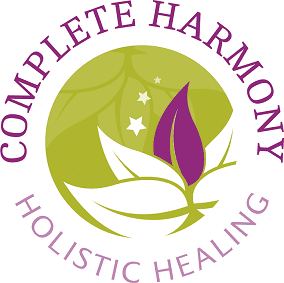Are you a carer? Do you sometimes feel stressed and overwhelmed by your caring responsibilities? In this blog I share with you five quick ways for you to de-stress.
“I used to say to people who said they were caring for a family member, that’s really kind of you. But now I’m a full-time carer for my husband, I know it’s extremely hard work.” These are the words of a carer I worked with recently.
Previously she had a career as a senior accountant for a large company. She worked hard and supported junior accountants too. She sometimes worked long hours, but at the end of the day, she could switch off from work and enjoy her weekends. She told me, all this changed when she became a carer.
For over 15 years I have worked with a local carers’ trust providing bi-monthly relaxation events where I deliver hands-on taster treatments of reflexology, reiki and Indian head massage to their service users. These sessions are extremely popular, and always well attended and there is usually a waiting list. During the lockdown, feelings of stress were heightened among their carers, so I added online workshops designed to teach stress-management techniques for the carers to use at home.
At this time many carers were feeling isolated and the opportunity to learn a new skill, and manage feelings of stress whilst connecting with like-minded people, helped to create a community spirit and reduce feelings of isolation. This service has continued and is very popular amongst unpaid carers who are unable to (or prefer not to) attend face-to-face meetings.
Many carers have little time for their own needs. They stop looking after themselves and consider having time to themselves a luxury. This plays a significant part in them feeling that they have lost their identity as an individual and they feel they are seen by others as just a carer. The demands of being a carer can result in being burnt-out and feeling stressed which is why having time to yourself is important.
How being a carer can affect you
When you’re caring for a loved one it can be a 24-hour job. It’s a job you have no specific training for, one you didn’t sign up for and you have little support from social or state services; not just for the person you are caring for but also for your own health and wellbeing. Friends and other family members don’t understand the demands it makes on you and how caring affects your physical, emotional and mental health.
In discussions with carers, they tell me their top eight reasons for feeling stressed are:
1. They have little or no regular respite
2. Little social life as they don’t have the time and their friends don’t understand
3. They feel they are always on the go
4. They have lots of plates spinning
5. It’s harder work mentally, physically and emotionally than they had imagined
6. Loss of identity – no longer part of a team
7. Battling with social services for support
8. Feeling isolated – not many like-minded people to share experiences with.
Why regular stress management is important
You’ve probably heard these two sayings before…
‘You can’t pour from an empty cup,’ and ‘put your own life jacket on first.’
These are true for all of us but are particularly important when being fit and healthy are vital when you have the responsibility of caring for someone else. As well as experiencing better health, managing your stress levels will help you to feel calmer, enjoy better sleep, have reduced muscle tension, be more able to cope during challenging times and be a nicer person to be around.
5 quick ways to de-stress
Here are some quick and easy things you can do to help you to reduce and, more importantly, manage your feelings of stress. Doing any of these for as little as five minutes can make a significant difference to your wellbeing.
Stop and take a break – Listen to some music, sit and enjoy a nice cup of your favourite drink, go for a short walk, watch the birds in the garden or read a book. You will feel so much better for having even just a few minutes to yourself.
Breathing exercises – Simple breathing exercises can be done anytime and anywhere and are a quick and effortless way to reduce feelings of stress. You can find some tips here.
Meditation – Spending a few minutes a day in quiet, still, silence will help you to feel mentally calm and physically relaxed. If you’re not sure how to get started you can find lots of free guided meditations online.
Moving meditation – Meditation doesn’t have to involve sitting still in silence. Moving meditations are activities that allow you to gently move your body and have a reflective element to them. Examples include gentle yoga, tai chi or pilates classes (in-person or online), gentle gardening, walking in nature, something crafty and dancing.
Plan something – When you have a limited amount of time, planning is crucial to enable you to get everything done. Having something planned that’s just for you will help to lift your spirits as it gives you something positive to look forward to. If your planned event includes someone else, you’re less likely to cancel it.
Here’s what Julie had to say after attending a stress management session…
“I booked this session because I wanted more knowledge and information on using different tools to help me relax. The 1-2-1 time made me commit to the session. This is very hard unless I have a solid fixed appointment as I often let things slip if it’s just for me. During the session, I learnt to quiet my mind and to allow myself to feel what I feel. After the session I felt relaxed and calm.”
Julie, Solihull
How often should you practise?
It’s a good idea to practise at least one stress-reducing activity every day. Practise makes perfect so by doing something every day you will become proficient in different techniques and know which one works best for you in different situations.
When you encounter a stressful situation and you need to call on one of the techniques, you will be able to perform it quickly and accurately without having to think too much about how to do the technique.
Need to know more?
When you provide your unpaid carers with the opportunity to attend regular wellbeing sessions, whether in-person or online, you are investing in their health and wellbeing and helping them to continue providing the vital service that they deliver.
The services I offer to Carer Trusts are also available for care home residents and to individuals who provide care for a family member but are not connected to a carer’s trust. You can find out more here. If you would like to know more about the services I offer and how they can help you, please get in touch for a no-obligation Discovery Call.
About Sharon

Sharon lives with her partner, Geoff, in Warwickshire and they have two adult children. She worked for over 25 years in an office environment, gaining qualifications to degree level in finance, business and management. While there Sharon witnessed and experienced many stressful situations and suffered illnesses which were stress related.
Sharon was advised to make some changes to her lifestyle which included trying complementary therapies. After experiencing the benefits of complementary treatments, Sharon decided to retrain and to share her knowledge and experiences to help others recognise and manage their own physical and emotional stress and anxiety levels.
She has been working as a complementary therapist for over 15 years now and loves helping people manage and reduce their stress levels to feel uplifted, focused, positive and empowered about their lives.




